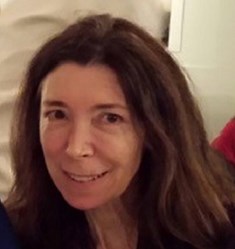'Meet the Editor’ feature: Dr. Karen Steingart, CIDG Editor
Monday, 01 Aug 2016In the fifth installment of the CIDG ‘Meet the Editor’ feature, we interview Dr. Karen Steingart
 Could you describe where you currently work and what you do there?
Could you describe where you currently work and what you do there?
I work from home in Portland, Oregon, USA. From my home office, I perform systematic reviews in tuberculosis diagnostics ‘virtually’ with colleagues from different universities, organizations, and countries. The windows by my desk look out onto our garden, welcoming robins and hummingbirds and an occasional coyote.
What is a typical day for you?
I typically awake at 5:00 am Pacific Standard Time (-8:00 hours GMT). I do my best thinking in the morning. Also, I am able to communicate more easily with colleagues in different times zones. After working for several hours, I go for a run or to the gym. Then I eat breakfast and return to work.
What prompted you to work in his area?
From an early age I wanted to be a doctor and help people, especially people living in poverty, lead healthy lives. In 2004 I did a fellowship in tuberculosis at the University of California, San Francisco. There, I met Madhu Pai, MD, PhD (currently Professor of Epidemiology at McGill University in Montreal, where he holds a Canada Research Chair in Translational Epidemiology & Global Health and serves as Director of the Global Health Programs). I had never performed a systematic review (I barely knew what they were). Nonetheless, Madhu invited me to lead two systematic reviews about the accuracy of smear microscopy for diagnosing TB (both reviews were published in The Lancet Infectious Diseases). We were invited to present the findings at a WHO guideline development group meeting in Geneva. I saw first hand the impact of systematic reviews on policy development. I was deeply affected. I felt like I had contributed to something meaningful. I decided that I wanted to continue to be involved in synthesizing research evidence and performing systematic reviews.
What are the major challenges that still remain in your field?
For TB diagnosis, there are several challenges. We need a simple, low cost triage test for use by community health workers. We need a test that is not sputum-based for all forms of TB disease, including extrapulmonary TB and TB in children. We need new rapid molecular drug susceptibility tests for use in facilities close to patient care, not just in central research centers. And we need a test that can identify individuals with latent TB infection who are at the highest risk of progressing to active TB disease, and could benefit from preventive therapy.
How did you first hear about Cochrane?
In 2007, I trained with Professor Mike Clarke at the University of Oxford. Mike was Director of the UK Cochrane Centre at the time. His course took students through the process of doing a systematic review in a practical way.
What is the most rewarding aspect of being involved with Cochrane?
Working with others involved in Cochrane. Cochrane is my “learning community”. Being a part of Cochrane means being with a great, diverse team, something larger than myself.
Who (or what) has been the biggest influence on your career to date?
I would like to mention several people: my father; Mrs Glass (my high school chemistry teacher); Dr Arnold Stern (my pharmacology professor at New York University School of Medicine); and Dr Pai.
Please list three words you would associate with Cochrane.
Passion, quality, meaningful
What do you do in your spare time?
Running and gardening. I am studying piano and French. My daughter recently gave birth to Leonardo, my first grandchild. I love spending time with him.
The CIDG editorial base is located at the Liverpool School of Tropical Medicine in Liverpool, UK. The CIDG is led by Professor Paul Garner (Co-ordinating Editor) and Anne-Marie Stephani (Managing Editor). Over 600 authors from some 52 countries contribute to the preparation of the Cochrane Reviews. They are supported by an international team of Editors, each with topic or methodological expertise.
The CIDG’s main areas of work are on determination of the effects of interventions on the prevention or treatment infectious diseases of relevance to the United Nations Sustainable Development Goals, particularly malaria, tuberculosis, HIV/AIDS, and neglected tropical diseases. The aims of the CIDG are to impact on policy and research in tropical diseases through the production of high quality and relevant systematic reviews, and to lead developments in review quality improvement and effective dissemination of findings.
